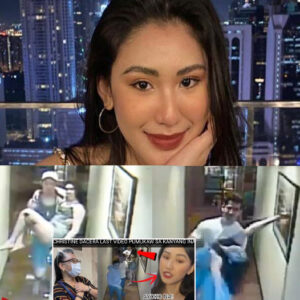Chicago Sky players Dana Evans and Isabelle Harrison
As the WNBA attempts to come together to address the abuse that has followed rookies Caitlin Clark and Angel Reese to the pros this season, two of Reese’s Chicago Sky teammates spoke out about the struggle to deal with “hate and harassment” after their final game of the season.
In a postgame press conference Thursday night, Dana Evans and Isabelle Harrison explained how negative online chatter affected them personally and as a team all season long.
“Sometimes, you can read tweets, and you can read stuff, and that can affect people in the locker room,” Evans said. “Just keeping that out, just making sure we stay together as a whole and (that) we know we’ve got each other’s back … was a lesson for this whole league this year.”
Before anyone assumed this was just Clark supporters, Indiana Fever fans, or culture warriors, Evans clarified that Sky players even sometimes felt hate from their own fans in Chicago.
“We’re professionals, we know that we can play this game, but when you’ve got people that’s steady bashing you that’s supposed to be our supporters, that was a little slap in the face,” Evans said.
While Evans said this season forced her to rise to a new level in terms of mental toughness to block out the new normal of negativity from fans, Harrison called it “disgusting” and was honest that she had a very hard time handling it in 2024.
“I’ve never experienced this much hate and harassment,” Harrison said. “I get emotional about it … it’s hard because it should have never been like that.”
Earlier in September, WNBA commissioner Cathy Engelbert gave a thin answer when asked by CNBC to address the racism, homophobia and other forms of hate her players face online. After encouraging players to ignore it for the betterment of the league simply, Engelbert later posted a public apology to X and sent a formal letter to her players apologizing to them and promising further mental health resources for players.
Hearing Harrison speak, it is clear Engelbert’s response was too little, too late. Even as teammates of one of the popular new rookies, Sky players struggled to rise above the constant noise.
“If it’s online, it’s online,” Harrison said. “But you now get tagged in it. I’m constantly having to block people, and people are just making narratives about you. It’s hurtful. And it’s hard to just focus on basketball. I appreciate the new eyes, but if this comes with hate and bigotry and racism and even people who look like me bashing me, keep it offline because it’s so hurtful, and you don’t know how that affects people. I just think that’s something that a lot of new fans should be mindful of, and we don’t want that to carry into the locker room.”
Both Sky players agreed it’s impossible to ignore comments online fully.
While 2024 may serve as a learning lesson for some, the league has a lot of ground to make up to insulate its athletes from the sudden influx of negative voices that are affecting their mental health, relationships with teammates, and, at times, their personal safety.
Some may look at this conversation in the WNBA and believe it’s par for the course for athletes and public figures in 2024. If that’s true, it may be time not to demand that WNBA players simply put their heads down and deal with it but listen to the women in this league who are thoughtful enough to speak up and use their words to learn more lessons about how to protect public-facing people of all types from online hate.
News
NAGSASALITA SIYA SA WAKAS! Ibinunyag ni Kyline Alcantara ang Tunay na Dahilan sa Paghiwalay Nila ni Kobe Paras — “I Deserved Better”/hi
After months of silence and speculation, Kyline Alcantara has broken her silence on her highly publicized breakup with basketball star Kobe Paras — and her revelation is…
Cristine Reyes Breaks Her Silence! Reveals Marco Gumabao’s ‘Dark Secrets’ After Shocking Breakup/hi
In a turn of events that has left the entertainment world stunned, actress Cristine Reyes has finally spoken out following her explosive breakup with actor-model Marco Gumabao…
Ricky Rivero Has Passed Away: The Heartbreaking Final Moments of the Former Actor and Dancer/hi
Manila, Philippines – A wave of grief has swept across the entertainment industry as news broke that former actor and dancer Ricky Rivero has passed away. Known…
Nagulat ang lahat! After 14 years of marriage, Kristine Hermosa posted the whole truth on social media /hi
After 14 years of marriage, Kristine Hermosa, one of the beauties of the Philippine screen, has surprised the online community when she posted a touching post on…
SHOCK: CHRISTINE DACERA’S LAST MOMENTS IN CR WERE CAPTURED BEFORE SHE LEFT. A warning to all women./hi
Remembering Christine Dacera: A Wake-Up Call for Women’s Safety and Justice in the Philippines Christine Angelica Dacera was more than just a name in the headlines. She…
😲 Unexpected Twist? Ice Seguerra Trends Online After Netizens Claim They Spotted a Baby Bump!/hi
Singer Ice Seguerra has dismissed a viral art card claiming she is pregnant. “I AM NOT PREGNANT!!! This is just a rumor,” Ice simply rebutted the spreading…
End of content
No more pages to load











